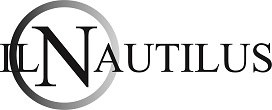We produce a lot of plastic; that’s a fact. And it’s also a fact that plastic pollution has become one of our most pressing environmental issues. According to the Organization for Economic Co-operation and Development, since 2000, plastic waste has more than doubled to 353 million metric tons. Also, less than 10% of the plastic used worldwide is recycled, the Paris-based OECD said in a report published this year.
But now, the World Sustainability Organization (WSO) and its projects, the international certifications Friend of the Sea® and Friend of the Earth®, are offering Plastic Offsets to support cleaning our Oceans and in line with the UN 2030 Agenda for Sustainable Development and its 17 Sustainable Development Goals (SDGs). Plastic Offset is an effective way to protect our ocean and its marine life. Companies and individuals who want a real impact can support an organization combating plastic pollution while intercepting a defined amount of plastic waste from the environment on their behalf.
But offsets can be tricky. Accountability and transparency are vital in ensuring a company or individuals contribute to the right place. After all, who is verifying these claims?
Founded by Paolo Bray and bringing over 30 years in the sustainability certification process, the WSO currently works with 1500 companies, 5000 products, and over 80 countries worldwide. SLAB, Accredia, KAN, and IAF accredit its certification standards.
The WSO’s efforts not only ensure Friend of the Sea® and Friend of the Earth® products are operating sustainably, they as well have standards on social best practices and responsibility standards.
HOW DOES IT WORK?
By launching the Plastic Offsets Initiative, the WSO is addressing Friend of the Sea® and Friend of the Earth® companies who want to counterbalance the use of plastic in their production processes. With the WSO, by paying 1 Euro per Kg of Plastic, a company can offset its plastic usage. All proceeds from the offset program are directed to WSO partner organizations in the field, with the money distributed this way: 80.5% to plastic waste collectors and 10.3% to social services. The WSO will support plastic clean–ups activities in the rivers and ocean, circular economy projects, and innovative systems that minimize the demand for virgin fossil fuels by producing plastic-derived oils.
Being part of the WSO Plastic Offsets Initiative allows a company to promote to customers its engagement and effort on this issue while informing the public through Friend of the Sea® and Friend of the Earth® certifications.
“Plastic is essential for our well-being and has also allowed us to reduce part of our environmental impact. However, plastic in marine and land environments is one of the worrying consequences of improper waste management. Companies that input plastic into the market without being able to organize its recovery, reuse/recycle, or thermo-valorization, must responsibly support programs and initiatives which recover the equivalent amount, or more, from the environment. We invite all companies to be part of the WSO Plastic Neutral program, and we will highlight their engagement as Friend of the Sea® or Friend of the Earth®. Let’s work together for a better planet!” said Paolo Bray.
WHO YOU’RE GOING TO SUPPORT – SOME EXAMPLES
Although this is an entirely new certification standard for WSO, the Organization currently supports over 30 conservation projects worldwide, with some already devoted to eliminating plastic pollution. Such as the Galapagos Conservation Trust (GCT). Thanks to WSO’s donation, the British charity will complete the classification of plastic collected from the Archipelago’s beaches, addressing one of the main threats to the survival of the waved albatross. WSO as well granted their Friend of the Sea® certification to River Cleaning. It is an entirely self-powered solution developed by the Italian firm Mold S.r.l. River Cleaning achieved the Friend of the Sea® sustainability certification after demonstrating that the system intercepts plastic and oil waste on the river course before it ends in the ocean, with no environmental impact and respecting the well-being of native species. Already tested in Italy, the service has been requested by several countries worldwide, such as India, Indonesia, Thailand, Togo, and Nigeria.
NEED ANOTHER REASON TO OFFSET WITH WSO?
To launch this program with extensive in the field knowledge, the WSO has engaged the services of Adrian Midwood. Adrian is an Ocean Captain by trade and has spent the past 11 years on the front lines of the Plastic Pollution crisis. Originating with open ocean clean-up ventures, leading to circular economy plastic projects in developing island nations, volunteer expeditions to far away countries, a grassroots Non-Profit founder, and more recently, the Executive Director of a Canadian registered Charity for a global foundation working directly on Plastic Pollution.
“It is an honor to work with WSO and bring this project to life. Unfortunately, plastic Offsets are not the solution to end the plastic crisis. However, they offer us the opportunity for businesses and individuals to take responsibility for their footprint now. While enabling us to channel these proceeds to efforts working on the ground and in the field every day”, commented Adrian Midwood.








